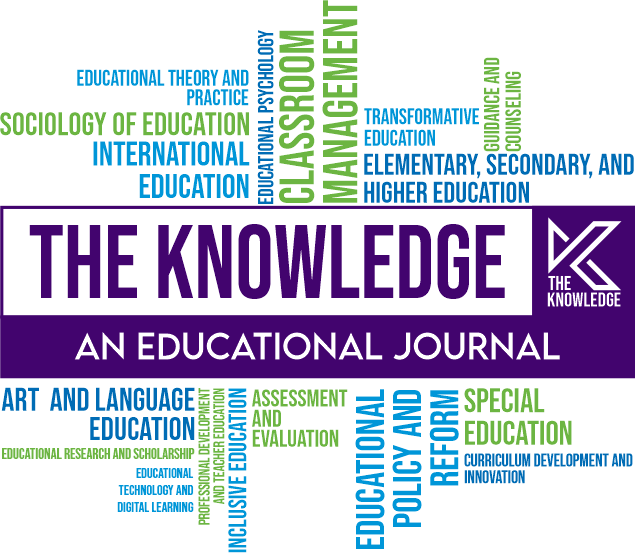Ethical Guidelines For Authors
As an author contributing to "The Knowledge," an esteemed educational journal, we uphold the highest standards of ethical conduct and integrity in academic publishing. These guidelines are designed to ensure that all authors adhere to principles of honesty, transparency, and scholarly excellence in their research and writing.
- Originality of Work: Authors must ensure that their submitted work is original and has not been previously published, in whole or in part, in any other publication or format. Proper citations and references should be provided for any previously published or copyrighted material used in the manuscript.
- Authorship and Acknowledgment:
-
- Authors should accurately list all individuals who have made substantial contributions to the research and writing of the manuscript as co-authors. All co-authors must have reviewed and approved the final version of the manuscript before submission.
- Contributions of non-author participants or organizations should be acknowledged appropriately in the manuscript's acknowledgments section.
- Plagiarism and Attribution: Plagiarism, in any form, is strictly prohibited. Authors must ensure that all sources used in their work are properly cited and attributed. Direct quotations, paraphrased content, and borrowed ideas should be clearly identified and referenced according to established academic conventions.
- Data Integrity and Reproducibility: Authors should provide accurate and reliable data in their manuscripts. Data fabrication, falsification, or selective reporting is unacceptable. Raw data and methodologies should be made available to support the findings presented in the manuscript.
- Conflicts of Interest: Authors must disclose any financial, professional, or personal relationships that may present a conflict of interest or bias in the research or its interpretation. Transparency in reporting potential conflicts of interest is essential for maintaining the credibility and trustworthiness of the research.
- Ethical Research Practices: Authors should conduct their research in accordance with ethical guidelines and standards applicable to their field of study. Compliance with institutional review board (IRB) approvals, ethical clearance, and informed consent requirements is mandatory for research involving human subjects or sensitive data.
- Compliance with Journal Policies: Authors are expected to familiarize themselves with and adhere to the submission guidelines, formatting requirements, and editorial policies of "The Knowledge." Failure to comply with these guidelines may result in delays in the review process or rejection of the manuscript.
- Peer Review and Corrections: Authors should engage constructively with peer reviewers and editors during the review process, responding to feedback and making necessary revisions to improve the quality and clarity of their work. Authors are also responsible for promptly addressing any errors or omissions identified post-publication.
- Copyright and Licensing: Authors retain the copyright to their original work published in "The Knowledge." Proper citation and attribution should be provided when using or reproducing content from the journal.
- Adherence to Best Practices: Authors are encouraged to stay informed about best practices in academic publishing, research ethics, and citation standards relevant to their discipline. Continuous learning and improvement are essential for maintaining the integrity and impact of scholarly work.
By following these ethical guidelines, authors contribute to the advancement of knowledge and the promotion of scholarly excellence within the academic community. "The Knowledge" values the integrity and professionalism of its contributors and appreciates their commitment to upholding ethical standards in research and publication





